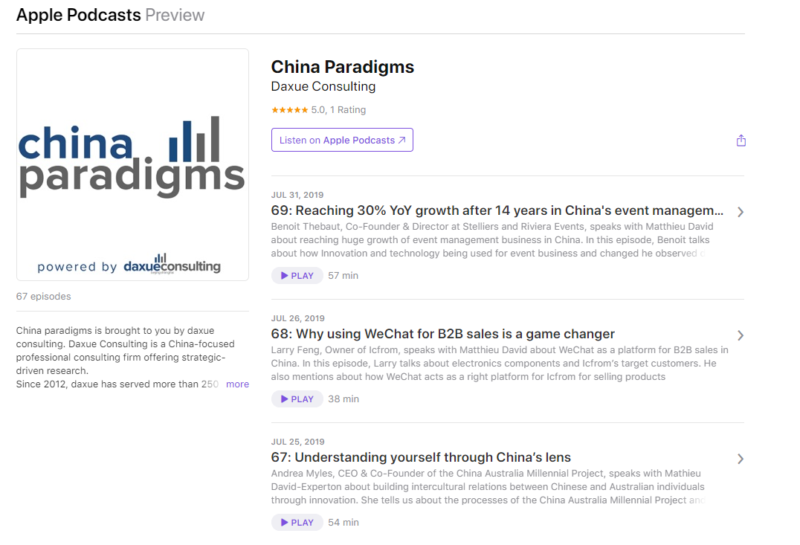Overview of The Real Estate market in China
The Real Estate Market in China
The real estate market in China has been an important pillar of the Chinese economy over the last decade. Demand for new housing has been very strong in cities with rising incomes. This is associated with massive urbanization that occurred in China during the past two decades creating a constantly growing need for housing. These two factors combined with the fact that the Chinese have seen the housing market as the best place to park their savings over the past decade, especially in the high range estate, help to drive the growth of the real estate market in China. Although housing prices keep rising, the Chinese government has taken several steps to cool down the real estate development since the global economic crisis in 2016.
Real Estate Market is Under Stress
The transition from a State-controlled in the 1980s to a market-based economy has put China on a path of high growth. The real boom came in the 1990s when the housing sector was privatized. It is at this point that the real estate market in China took off, resuming the work unit system in which the apartments were awarded as the benefits associated with the employment of a person. The magnitude of this change is the key to the analysis of China’s economic growth. The real estate development in China has been one of the most important factors for economic growth in China. According to a study conducted by BBVA Research, the real estate sector in China accounted for about 5% of GDP in 2000 and has reached 13% in 2016.
The Chinese government has also tried to help with recovery plans housing sector has overcome the global economic crisis in 2016. Tightening policies to stabilize the housing market in China have been implemented by the Chinese government since late 2016. According to the big data report on the real estate market in China, the average housing price of 24 core cities in China has increased by 5.73% in between 2018 and 2019. More specifically, the housing price of Shenzhen has increased by 5.58% and Shanghai by 0.81% year-on-year, while the housing price of Beijing fell by 3.99% year-on-year and Guangzhou by approximately 3.37%.
Entering a cool down period
Although residential housing prices are still rising slowly in the past ten years, research indicates that the real estate market in China has moved into a cool down period since it’s peak in 2016, with a lower growth rate and decrease of trading volumes across the country. However, Tier 1 cities like Beijing are still witnessing a continuing expansion in high-end residential housing supply as of Q2 2019, regardless of the overall slowdown of the housing market in China.
Research also indicates that the housing price in Tier 1 cities of China is too high for people to afford based on the fact that the price-to-income ratio has past 9.0 in 2018, which means the housing development in China could lead to more negative consequences than positive. The average annual income for Chinese living in urban areas is 39,251 RMB (5648 USD) in 2018, while the price of per square meter to buy apartments in China’s Tier 1 cities like Beijing or Shanghai can hover around 28,981 RMB (4,170 USD) to 37,420 RMB (5,384 USD) on average, according to Statista.
Among all types of housing choices in China, residential housing has been the largest component of the real estate development in China with the number of 8,698 billion RMB in total capital investment in 2017. In addition, transactions in residential housing in China generated a total revenue of 12,639 billion RMB in 2018, according to National Bureau of Statistics of China. In addition, China has built apartments for more than 36 million people in low income in 2015. These cheap apartments will be rented or purchased well below the market prices, although the financing of the construction and the transparency of the assessment of candidates have faced concerns and generalized questions.
Housing Boom in the Real Estate Market in China
In 2001, the Chinese Government has set up a large number of policies to strengthen the real estate sector so that it can function as a backbone of the economy Chinese. In 2001, the investment in real estate was estimated near 624.5 billion RMB and accounted for 17% of the total capital investment. This amount increased to 71.8 billion RMB or nearly 25.3% from 2012. The real estate market in China has opened and suffered an outbreak of prices due to the huge demand coupled with the rupture of the economy growth and the increase in salaries in China.
Concerns like if China’s real estate bubble would burst have not ceased in the past years. As an attempt to stop the overheated property market, China has drawn up a set of policies, to limit the number of homes that can buy an individual, causing, discounts on interest rates and imposing property taxes on luxury homes in some cities. Policies have worked to a certain extent, but it still has an inelastic demand, due to the rapid urbanization and some cultural traditions that emphasize the importance of owning his own house or apartment after a wedding. This will situation will help the industry to keep thriving in a long-term basis.
Future Prospects
The Asia Pacific Real Estate Market Outlook 2019 presented a few possible trends of the housing development in China. According to the report, the Chinese authorities have made relatively looser housing policies, which give more freedom and flexibility for both local governments and real estate developers when implementing such policies as compared to the past three years. Additionally, despite the shock caused by the trade war between China and the U.S., the integration of the GBA (珠三角), the Shanghai-led Yangtze River Delta (长三角), and Beijing-led Jing-jin-ji Area (京津冀) are expected to keep boosting the economic development of Tier 2 and Tier 3 cites within these area. Therefore, the housing markets in these areas will possibly keep booming as well.
See also:
- The Interior Design market in China
- How Will Strict Government Regulation Affect Real Estate in China?
Let China Paradigm have a positive impact on your business!
Listen to China Paradigm on iTunes











![[Podcast] China paradigm #2: How to reach 6 million USD sales without initial investment in the real estate industry in China](../wp-content/uploads/2018/05/501527244041_.pic_hd-150x150.png)




